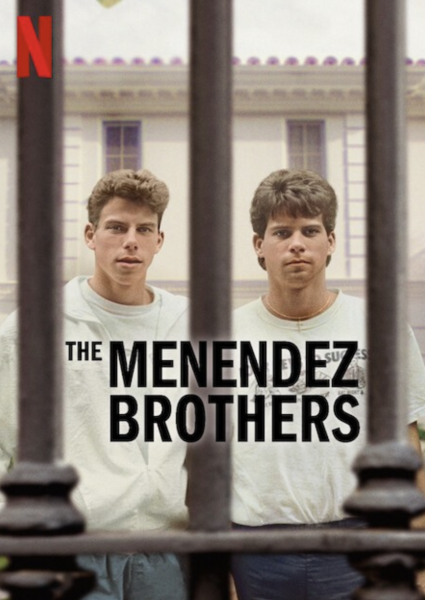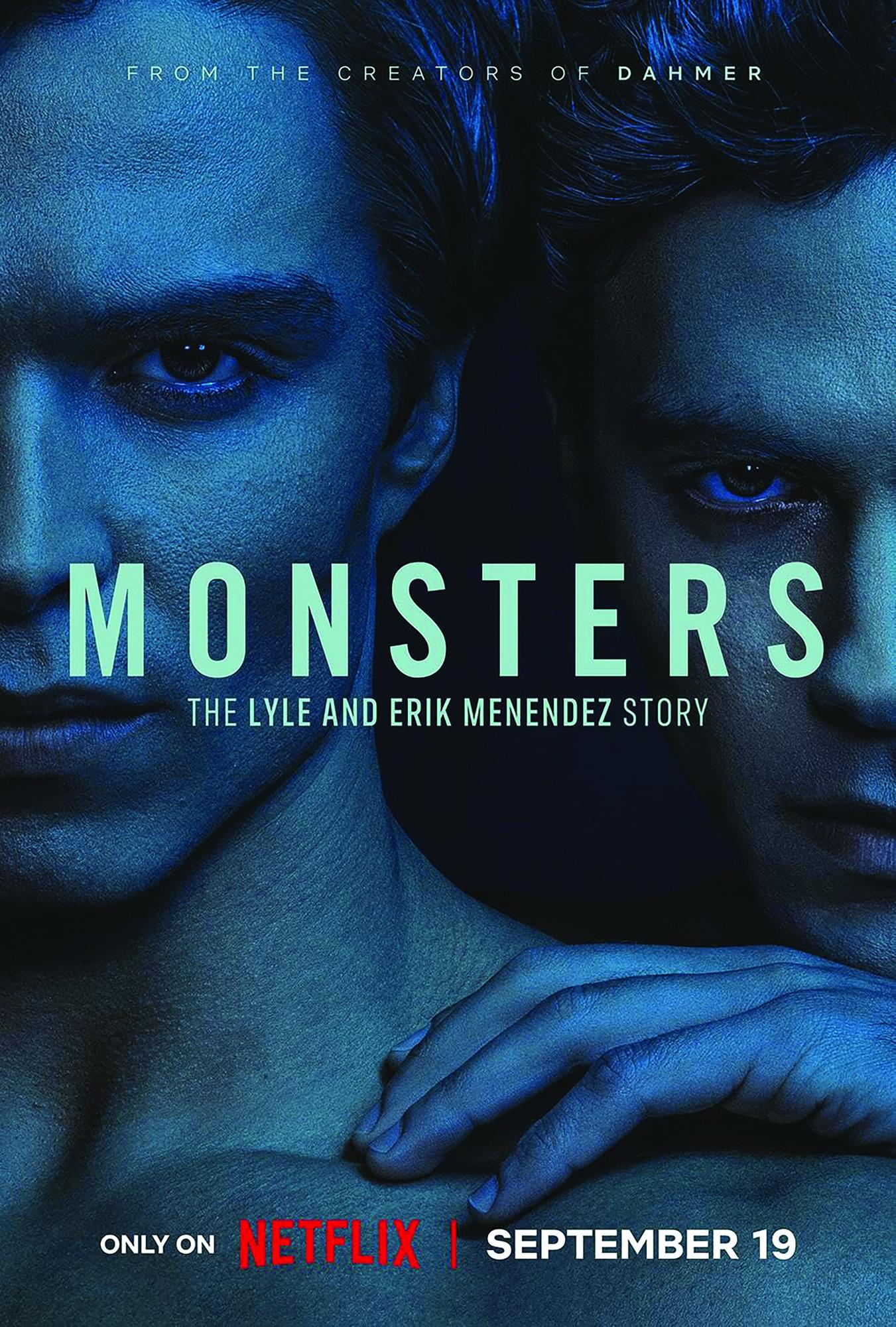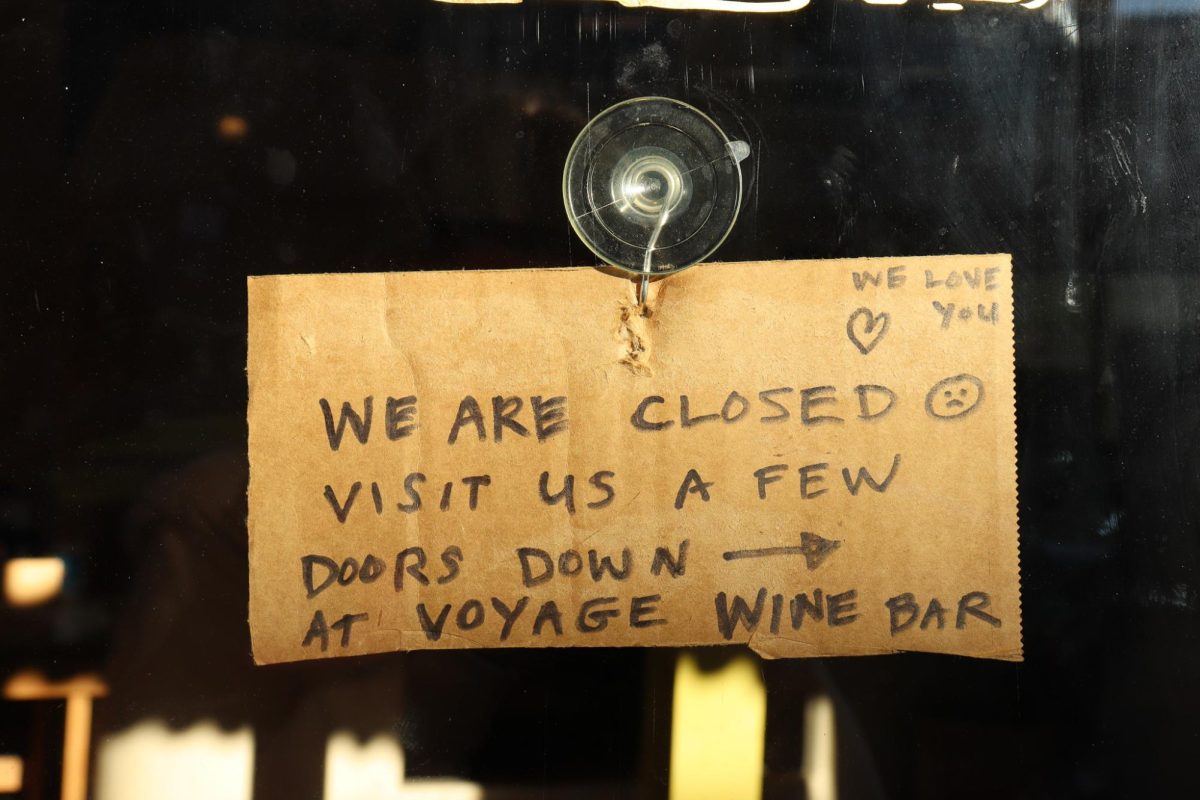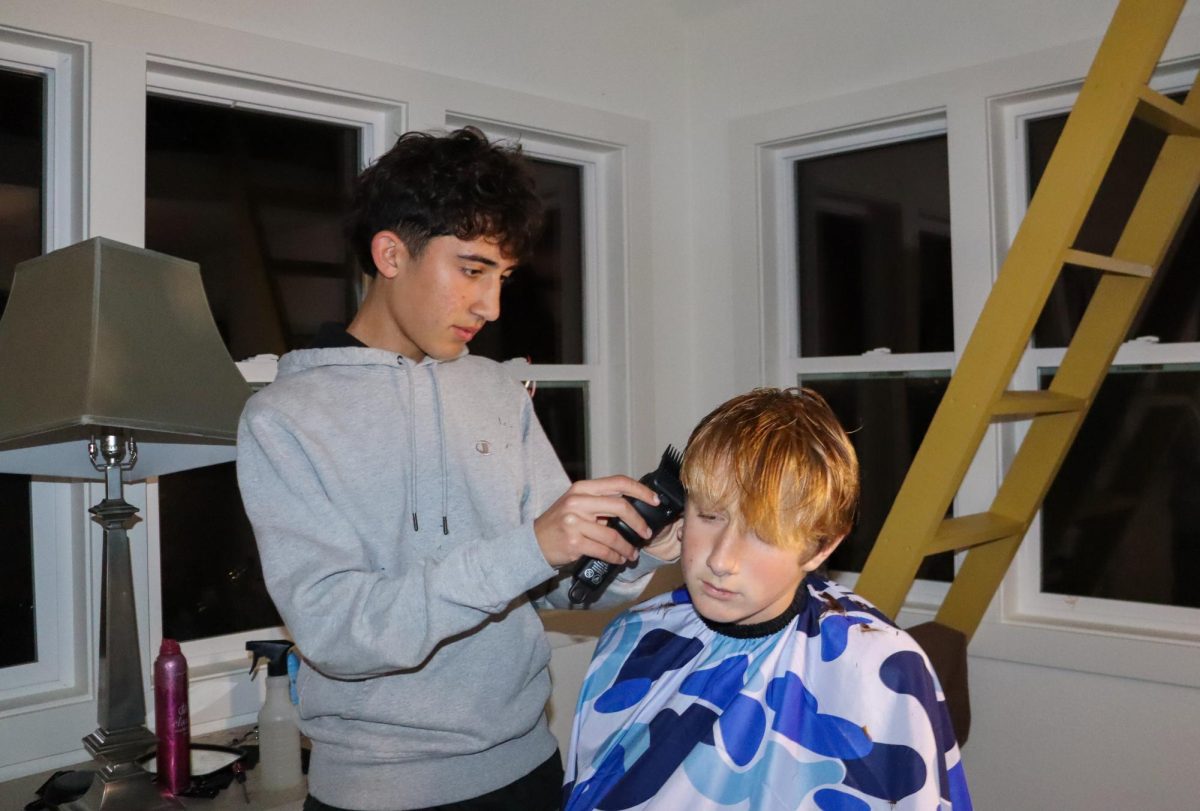In the 90s, murder cases quickly became a household topic of conversation due to the horror and fascination surrounding their gruesome details. Nearly 30 years later, the rise of platforms such as TikTok and Netflix has brought cases back into the spotlight. As media coverage of crime continues to captivate an audience of all ages, it can bring to light the stories behind the headlines, capturing the public’s attention from a controversial perspective.
Major production companies have continually popularized true crime with their films and shows. Netflix alone has produced hundreds of documentaries, dramatizations, and docu-series about murder. However, the genre’s popularity expands beyond Netflix, with other large production companies such as Hulu, Peacock, and HBO also continually releasing true crime content.
In recent months, the production industry has become heavily dominated by the case of brothers Erik and Lyle Menendez. The brothers were convicted of murdering their parents in 1989 after alleged sexual and physical abuse from their father, José Menendez. After shooting both of their parents at their home in Beverly Hills, the brothers immediately called 911, feigning their own innocence. Their alibis and air of innocence came crashing down when Lyle was later arrested, and Erik turned himself in shortly after.

Although partners in the same crime, the two were tried separately. In the case of both 18-year-old Erik and 21-year-old Lyle, neither jury could reach a verdict on whether to declare the brothers guilty of murder with malice aforethought or manslaughter. The result of this was that their jury was hung, leading to a second trial, where the brothers would be tried together in front of a single jury.
In 1996 after their inconclusive first trial, the brothers were convicted of first-degree murder and sentenced to life in prison without the possibility of parole. As of 2024, the brothers are scheduled for a hearing in January that could lead to a possible resentencing.
In October, less than a month after the release of Netflix’s 2024 dramatization Monsters: The Lyle and Erik Menendez Story, the company’s documentary The Menendez Brothers also premiered. While both productions cover the lives of Erik and Lyle Menendez, they do so each with their own take on the events.
Monsters is a dramatization, meaning that it employs actors Nicolas Chavez and Cooper Koch to cover the lives and trials of the Menendez brothers. Alternatively, the Netflix documentary takes a fact-based yet more personal approach, getting statements from the brothers themselves in order to tell the story from a previously unheard perspective.
In Monsters, viewers learn that the brothers claim to have been sexually assaulted by their father from a young age. However, the film implies the brother’s sinister relationship took on incestuous aspects, despite denial from both parties, taking away from the overall theme of sexual abuse. Alternatively, The Menendez Brothers documentary puts significant emphasis on unveiling Erik and Lyle’s experiences regarding their father’s abuse, something director Alejandro Hartmann intended to do from day one.
“In the end, this is a documentary about child sexual abuse, even if you believe [the brothers], even if you don’t believe them. That’s the issue that appears [in the documentary], and that’s the issue the audience is invited to think about more than the killings, more than the murder itself,” Hartmann said.
When the case first surfaced in 1989, information came out in bits and pieces, as the public had no way of completely knowing what had happened. This led to the speculation that the killings were so brutal and that they must have been a part of a mob attack. Coupled with the brothers claiming false alibis and feeding the narrative that their parents’ murders were a Mafia-connected attack, the public was left with few definitive facts about the situation. With the added soap opera intrigue surrounding the case, given it revolved around an attractive, high-class, and prominent Beverly Hills family, the murder trial was met with an intense media frenzy.
Hazel Thornton, a jury member for Erik Menendez’s first trial, saw firsthand how the media can warp the public’s perspective of a case, especially one as impactful as the brothers’. When the Menendez brothers’ case was turned from a judicial issue into the public eye, it can not only affect the public’s perception but also have a lasting impact on the result of the case itself. Government matters are supposed to be efficiently mechanical, and accurate data is critical, but when bare-bones, objective content gets into the hands of the public, there’s more room for it to spiral into fiction.
“I think turning the case into a point of entertainment prejudiced the second jury as well as the public. There were already two movies made about the case before the first trial was even over, and I believe it has delayed the brothers’ chances of ever being released from prison and being accepted into society,” Thornton said.
Due to the controversy surrounding the brothers’ defense, the public quickly became invested in the story and lives of the Menendez brothers. Their claims of sexual and psychological abuse from their father were varyingly believed by the public and media. Following the recent release of Monsters, the public’s reaction has become reminiscent of the frenzy in 1989. Due to the easy access that the public has to information via social media and other outlets, it became easier for the original story and case to become buried under layers of opinions and misinformation.

Archie Williams sophomore Jillian Penrod watched both seasons of Monsters following their release. After learning of the Menendez case on social media, she took to Netflix to gain a new perspective on the story. However, her research showed her the reality of the original story had gotten somewhat lost in the Netflix adaptation.
“I think Monsters impacts viewers’ perception of crime because it really almost romanticizes the whole idea of violence and murder in a way that social media and the viewers today kind of exaggerate and take too far, in a way where the almost original story is lost,” Jillian said.
Following a societal true crime inclination, dramatizations of criminal events have become increasingly popular. In 2022, a Pew Research Center poll found that nearly half of U.S. podcast listeners ages 18-29 listen to true crime podcasts regularly. In light of their new popularity, major production companies have amped up their creation of dramatized true crime films and television.
A common miscommunication between media and the public is the difference between a documentary and a dramatization. Misled or uninformed ideas often form when the audience does not understand the difference between a dramatization and a documentary. While dramatizations are often based on real events, they are recreations or adaptations featuring actors to portray what happened. Documentaries are also based on real events but use first or secondary sources like videos, photos, or interviews to convey what happened instead.
Real stories turned into fiction performances, dramatizations are sometimes exaggerated and manipulated from their original truth. Both portions of the Monsters series are dramatizations, as they took true events and turned them into entertainment. Alternatively, The Menendez Brothers is a documentary because it is based on objective information. In an age where social media is so common, apart from movies the majority of information the public absorbs has no restrictions and comes in concise, rapid pieces through platforms like TikTok and Instagram.
A media creator often puts effort into shaping production for the public appetite. As a viewer, there is hope that the information they take in has truth behind it.
“I think any show that is trying to portray violence or murder definitely takes it in a way that viewers can appreciate and understand. So it can be a little bit dramatized, but as a viewer, I’m hoping that I’m being told something that’s relatively real. But I think that any film or show director has to dramatize it to appeal to people and get people to watch it,” Jillian said.
For the Netflix documentary, providing an entertaining overview of the case simply wasn’t enough. Hartmann aimed to create a film that got as close to the truth as possible by presenting as many viewpoints on the case as he could.
“My main goal was to display all the different points of view of the story. We didn’t want to get tied to just one point of view. I wanted to have the brothers’ voices, the defense’s voice, but also the prosecution’s voice,” Hartmann said.
Documentaries like The Menendez Brothers help to reinvent the way audiences learn about crimes, presenting data and testimonies left untainted by clickbait culture. Hartmann’s documentary offers an evolved look at the Menendez Brothers’ case without buying into conspiracies or swinging in a set direction.
Given the mass scrutiny surrounding the case since the 1989 killings, Hartmann found it difficult to separate truth from fiction, something that other true crime films have continuously struggled with. However, by approaching the project with an unbiased lens, Hartmann hoped to do the case justice and keep its information as neutral and unembellished as possible.

“This is a documentary. This is a film. This is not the reality; it’s a construction. It’s not the reality, and [the case is] what [The Menendez Brothers] portrays, but any picture, any image, is not the reality. This has been done with good faith, trying to be as accurate as possible, and trying to explain to the audience how it happened,” Hartmann said.
In a study published in the National Library of Medicine, researchers found that “there was a significant relationship between childhood traumas and the tendency to be violent, and childhood traumas had an effect on the tendency to be violent.” This is also why accurately portraying crimes is important. Many of these events are built on difficult-to-deal-with histories, which, while challenging to navigate as a producer and viewer, are what make these stories so significant.
Remembering that each of these films is based on real people and events can be difficult when media platforms revive stories that can’t be appropriately portrayed in eight 50-minute dramatizations. The majority of criminal cases can’t ever be fully explained no matter how much detail the media provides, so the public must be mindful of what they are consuming. There is information to be gained from the stories themselves if viewers allow themselves to see media for what it is: a cautionary tale or point of learning, not necessarily reality itself.










